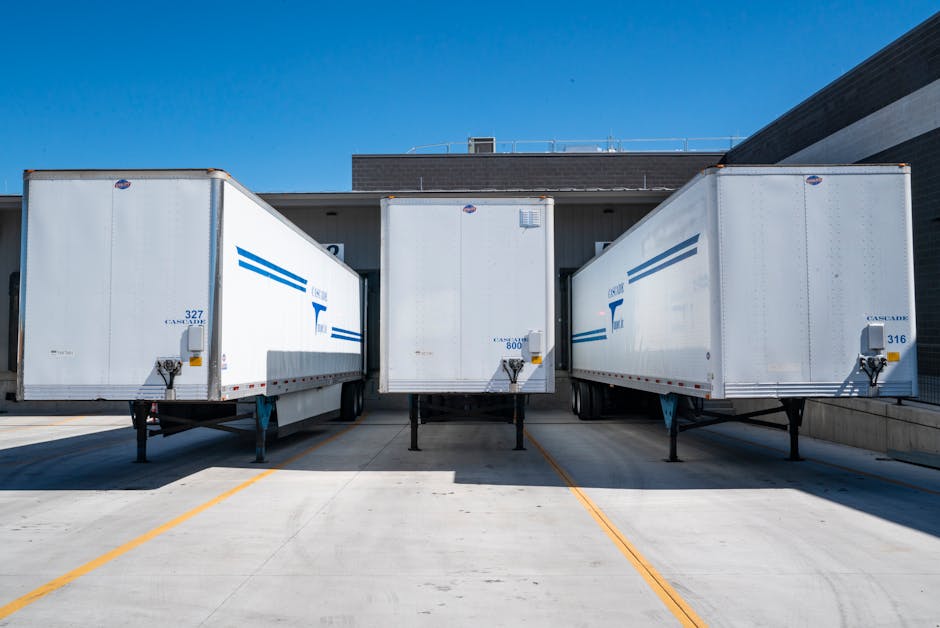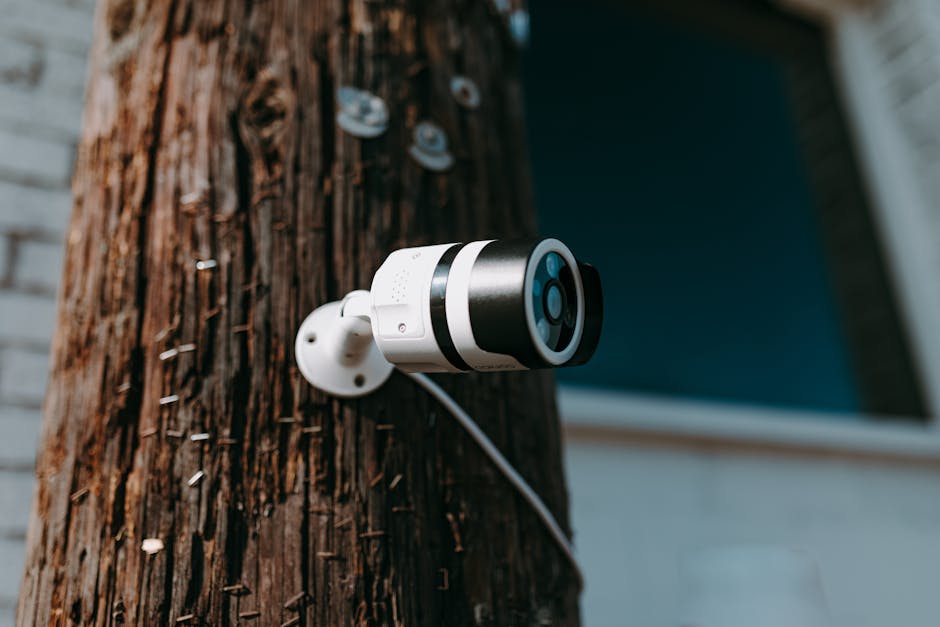

In the world of trailer safety and efficiency, a tire pressure monitoring system for trailers is no longer a luxury but a necessity. These advanced systems are designed to provide real-time data on tire pressure and temperature, ensuring that your trailer remains in optimal condition while on the road. By continuously monitoring the health of your tires, you can prevent potential blowouts, reduce wear and tear, and enhance fuel efficiency.
Imagine cruising down the highway with the confidence that your trailer's tires are in perfect condition. This peace of mind is invaluable, especially for long-haul drivers who cover extensive distances. A tire pressure monitoring system (TPMS) alerts you instantly if there's a significant drop in pressure or an unusual rise in temperature, allowing you to take immediate action before a minor issue escalates into a major problem.
Moreover, maintaining the correct tire pressure is not just about safety; it's also about saving money. Under-inflated tires can lead to increased fuel consumption and faster tire wear, which can be costly in the long run. On the other hand, over-inflated tires can reduce traction and lead to uneven wear patterns. A TPMS helps you strike the right balance, ensuring that your tires perform optimally and last longer.
So, why wait? Tow with peace of mind, knowing that TrailerWatchdog is standing guard. Dive into the world of tire pressure monitoring systems and discover how they can transform your trailer experience.
Importance of Tire Pressure for Trailers

The importance of maintaining proper tire pressure for trailers cannot be overstated. Whether you're hauling goods across the country or towing a recreational vehicle for a weekend getaway, ensuring that your trailer's tires are properly inflated is crucial for several reasons.
Firstly, tire pressure directly affects the safety of your trailer. Under-inflated tires can overheat, leading to blowouts that can cause severe accidents. Conversely, over-inflated tires can become too rigid, reducing their ability to absorb shocks from the road and increasing the risk of tire failure. Properly inflated tires ensure that your trailer handles well, especially during sudden maneuvers or emergency braking situations.
Secondly, maintaining the correct tire pressure enhances fuel efficiency. Under-inflated tires create more rolling resistance, which means your vehicle has to work harder to move the trailer. This increased effort translates to higher fuel consumption. By keeping your tires at the optimal pressure, you can reduce fuel costs and improve your trailer's overall efficiency.
Additionally, proper tire pressure contributes to the longevity of your tires. Tires that are consistently maintained at the right pressure experience more even wear patterns, extending their lifespan. Uneven tire wear caused by improper inflation can lead to frequent tire replacements, adding to your maintenance costs.
Lastly, ensuring your tires are correctly inflated can enhance the comfort of your ride. Properly inflated tires absorb road imperfections better, providing a smoother towing experience. This is particularly important for long journeys where comfort can significantly impact the driver's focus and overall experience.
In summary, maintaining the right tire pressure is vital for safety, fuel efficiency, tire longevity, and ride comfort. It's a simple yet effective way to ensure that your trailer performs at its best on every trip.
Benefits of Tire Pressure Monitoring Systems
Installing a tire pressure monitoring system (TPMS) for trailers offers numerous benefits that go beyond simple convenience. These systems provide real-time data and alerts, ensuring that your trailer remains in optimal condition throughout your journey.
One of the primary advantages of a TPMS is enhanced safety. By continuously monitoring tire pressure, the system can instantly alert you to any sudden changes, such as a rapid loss of pressure or a slow leak. Early detection of such issues allows you to take immediate action, preventing potentially dangerous situations like blowouts or tire failures.
Another significant benefit is improved fuel efficiency. A TPMS helps you maintain optimal tire pressure, which reduces rolling resistance and, consequently, fuel consumption. Over time, this can lead to substantial savings on fuel costs, making your trailer operations more economical.
Additionally, a TPMS contributes to extended tire life. By ensuring that your tires are always inflated to the recommended levels, the system promotes even tire wear. This not only prolongs the lifespan of your tires but also reduces the frequency and cost of replacements. Properly maintained tires are less likely to suffer from uneven tread wear, which can degrade performance and safety.
The convenience offered by a TPMS cannot be overlooked. Manual tire pressure checks can be time-consuming and often neglected. A TPMS automates this process, providing you with constant updates without any manual intervention. This continuous monitoring ensures that your trailer is always road-ready, saving you time and effort.
Lastly, a TPMS can lead to a smoother and more comfortable ride. Properly inflated tires absorb road shocks better, enhancing the overall towing experience. This is particularly beneficial for long-distance hauls, where driver fatigue and discomfort can be significant concerns.
Incorporating a tire pressure monitoring system into your trailer setup is a wise investment. It not only boosts safety and efficiency but also contributes to the longevity of your tires and the comfort of your journey.
How Tire Pressure Monitoring Systems Work

Understanding how a tire pressure monitoring system (TPMS) for trailers works can help you appreciate the technology and its impact on trailer safety and performance. These systems employ a combination of sensors, transmitters, and receivers to provide real-time data on tire conditions.
Protect your trailer
The core component of a TPMS is the tire pressure sensor. These sensors are typically mounted inside the tire on the valve stem or attached to the wheel rim. They measure the air pressure within each tire and, in some advanced models, can also monitor temperature. The sensors continuously collect data and transmit it to the TPMS control unit.
The TPMS control unit acts as the system’s brain. It receives the data from the sensors and processes it to determine if the tire pressure is within the acceptable range. If the pressure drops below or exceeds the recommended levels, the control unit triggers an alert. This alert is usually displayed on the vehicle’s dashboard or through a dedicated TPMS display, ensuring the driver is immediately aware of any issues.
Some TPMS models use wireless communication to transmit data from the sensors to the control unit. This eliminates the need for complex wiring and makes installation easier. The wireless signals are robust and reliable, ensuring that data is transmitted without interference, even in harsh conditions.
In addition to pressure monitoring, advanced TPMS systems offer temperature monitoring. High tire temperatures can indicate potential problems such as overheating brakes or excessive friction. By monitoring both pressure and temperature, these systems provide a comprehensive overview of tire health, allowing for proactive maintenance and preventing catastrophic failures.
TPMS technology also includes user-friendly interfaces. These interfaces display the real-time status of each tire, often with color-coded indicators to highlight issues. Some systems even offer mobile app integration, enabling drivers to monitor tire conditions remotely via their smartphones.
Overall, a TPMS uses a sophisticated network of sensors and communication tools to keep you informed about the state of your trailer’s tires. This real-time data is invaluable for maintaining safety, efficiency, and performance on the road.
Choosing the Right Monitoring System

Selecting the right tire pressure monitoring system for trailers is crucial for maximizing safety and efficiency. With various options available, it can be challenging to determine which system best suits your needs. Here are some key factors to consider when making your choice:
1. Sensor Type: TPMS sensors come in two main types: internal and external. Internal sensors are mounted inside the tire, typically on the valve stem, and offer more accurate readings. However, they require tire removal for installation and maintenance. External sensors, on the other hand, are attached to the valve stem’s exterior and are easier to install but may be less protected against damage.
2. Monitoring Capabilities: Basic TPMS models monitor only tire pressure, while advanced systems also track temperature. Opt for a system that includes temperature monitoring for a more comprehensive overview of tire health. Some systems also feature alert customization, allowing you to set specific threshold levels for pressure and temperature warnings.
3. Display and User Interface: The ease of use is an essential factor. Choose a TPMS with a clear, intuitive display that shows real-time data for each tire. Some systems offer dedicated displays, while others integrate with your vehicle’s existing dashboard or provide mobile app connectivity for remote monitoring.
4. Battery Life: Since TPMS sensors are wireless, battery life is a critical consideration. Look for systems with long-lasting batteries to minimize maintenance. Some advanced models come with replaceable batteries, while others are sealed units requiring complete sensor replacement when the battery dies.
5. Installation and Compatibility: Ensure that the TPMS you choose is compatible with your trailer’s specifications. Consider whether you prefer a system that you can install yourself or one that requires professional installation. Some systems are designed for specific trailer types, such as RVs or commercial trailers, so make sure to choose accordingly.
6. Brand Reputation and Reviews: Research the reputation of the TPMS brand and read customer reviews. Reliable brands with positive feedback are more likely to offer quality products and customer support. Look for systems with good warranties and responsive customer service teams.
By carefully evaluating these factors, you can select a TPMS that meets your specific requirements and enhances your trailer’s safety and performance. Investing in the right monitoring system not only protects your valuable cargo but also ensures peace of mind while on the road.
Conclusion on Tire Pressure Monitoring

Investing in a tire pressure monitoring system for trailers is a wise decision that can significantly enhance your safety, efficiency, and overall driving experience. By keeping a vigilant eye on your tire pressure and temperature, TPMS helps prevent potential hazards, costly repairs, and inconvenient breakdowns. It ensures that your trailer operates within optimal conditions, leading to better fuel efficiency, longer tire lifespan, and a smoother ride.
Throughout this article, we have highlighted the critical reasons to adopt a TPMS, ranging from safety and efficiency to economic benefits. We delved into the functionalities and advantages of various monitoring systems and provided insights on how to select the right one tailored to your needs. By understanding these aspects, you are better equipped to make an informed choice that will ultimately safeguard your travels.
With the right TPMS in place, you not only protect your investment but also gain peace of mind knowing that your trailer is continuously monitored. This proactive approach can save you from unexpected issues that may arise on the road, allowing you to focus on your journey ahead.
Tow with peace of mind, knowing that TrailerWatchdog is standing guard. Our state-of-the-art monitoring systems are designed to provide real-time data and alerts, ensuring your trailer remains in optimal condition. Equip your trailer with our advanced TPMS and experience a safer, more efficient, and worry-free journey.




